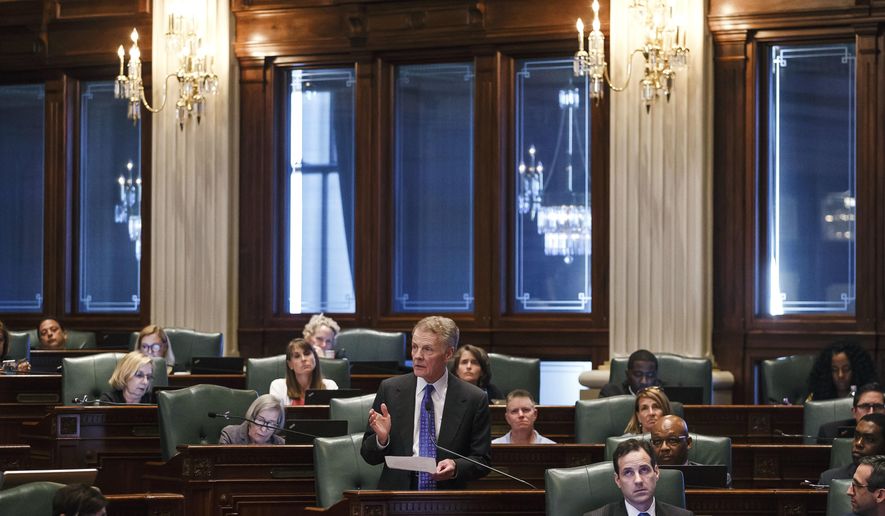OPINION:
Money makes the world go ’round, and the lack of it usually brings everything to a halt. Congress is grappling with long-promised tax reform and the naysayers warn against getting in the way of the tsunami of revenue to the Treasury, urging legislators to stay the course. Some might call it staying the curse. Only if there really is a free lunch is there nothing to worry about.
Donald Trump won rousing applause for his campaign vow to reform the tax code, and as recently as last month House Speaker Paul Ryan promised business leaders that “we’re going to get tax reform done in 2017.” The president’s economic adviser, Gary Cohn, struck a slightly cautious note. “If tax reform doesn’t get done this year,” he says, “it’s probably never going to happen.” The White House wants to reduce the corporate tax rate from 35 percent to 15 percent, arguing that just as when individual Americans keep more of the rewards of their labor they work harder and produce more, so, too, do business companies. Companies can innovate and reinvest. This adds up to more tax revenue.
Talk of tax cuts sounds like fingernails on a blackboard to “progressives,” so called, who have run away from the big-spending “liberal” label like a bank robber swapping getaway cars after a bank robbery. The New York Times insists that even Republican states are backing away from the doctrine that reducing taxes, or at least holding the line on increases, is a pathway to fiscal solvency.
The newspaper points to Kansas as an example of supply-side failure. There, state tax cuts enacted following the 2011 election of Republican Gov. Sam Brownback, have not produced a pot of gold at the end of every rainbow. With a budget shortfall projected to reach $889 million through 2019, the legislature has abandoned the governor’s attempt to jump-start the economy, and raised income tax rates. This is cited as a warning to President Trump and his economic team of what to expect if they proceed with a tax cut.
The Kansas experience is a disappointment to supply-siders, but anecdotes can’t tell the whole story. If Kansas is “the most striking rebuke of conservative tax policy in recent memory,” as The New York Times calls it, critics of runaway taxes could point to Illinois as an example of how progressive-liberalism can run a state — or a nation — into ruin.
The Illinois legislature celebrated Independence Day by passing a budget with $4.8 billion in new individual and corporate income taxes in hope of dodging a downgrade of its credit rating to junk status. Gov. Bruce Rauner, a Republican, quickly vetoed the budget, in fear of escalating taxes that would tip the state into a financial death spiral. The Democratic-controlled legislature refuses to do anything about its habitual deficit spending. Illinois has collected $15 billion in unpaid bills on the short route to the poorhouse.
If Kansas is meant to scare Mr. Trump and congressional Republicans to surrender their attempt to reform taxes, Illinois is a stark reminder that it’s the taxaholics who lead the way to financial ruin with their idea that raising taxes is the way to prosperity. Governments large and small wouldn’t be so quick to tempt fate if they followed the simple wisdom of Thomas Jefferson: “Never spend your money before you have earned it.”




Please read our comment policy before commenting.